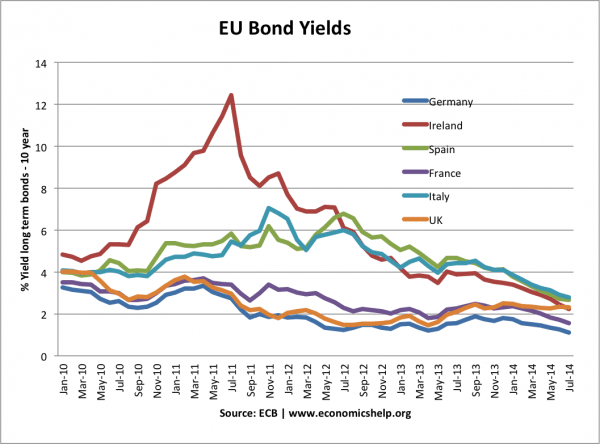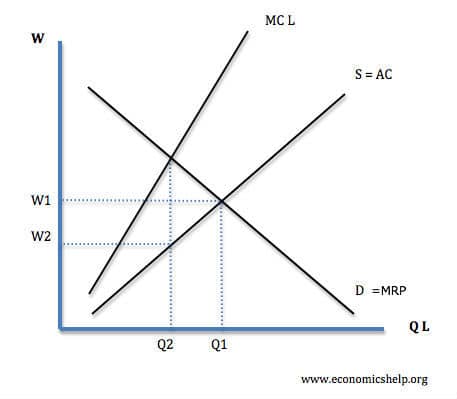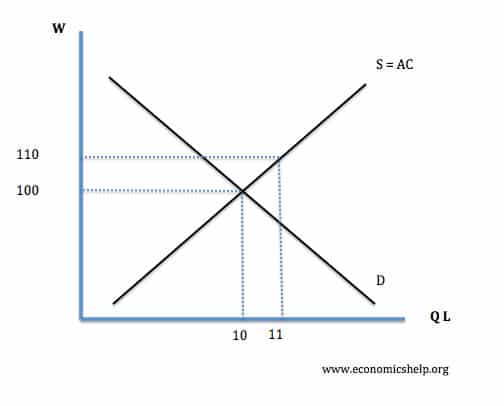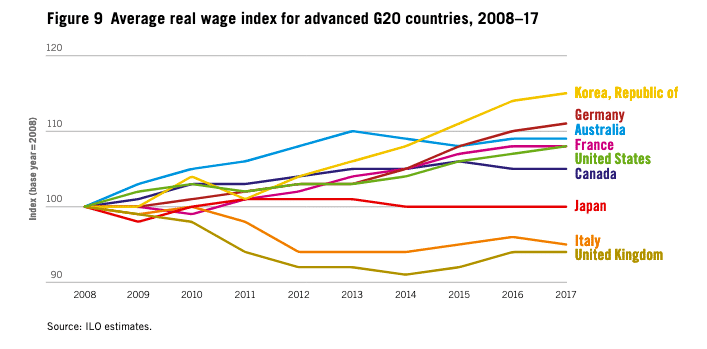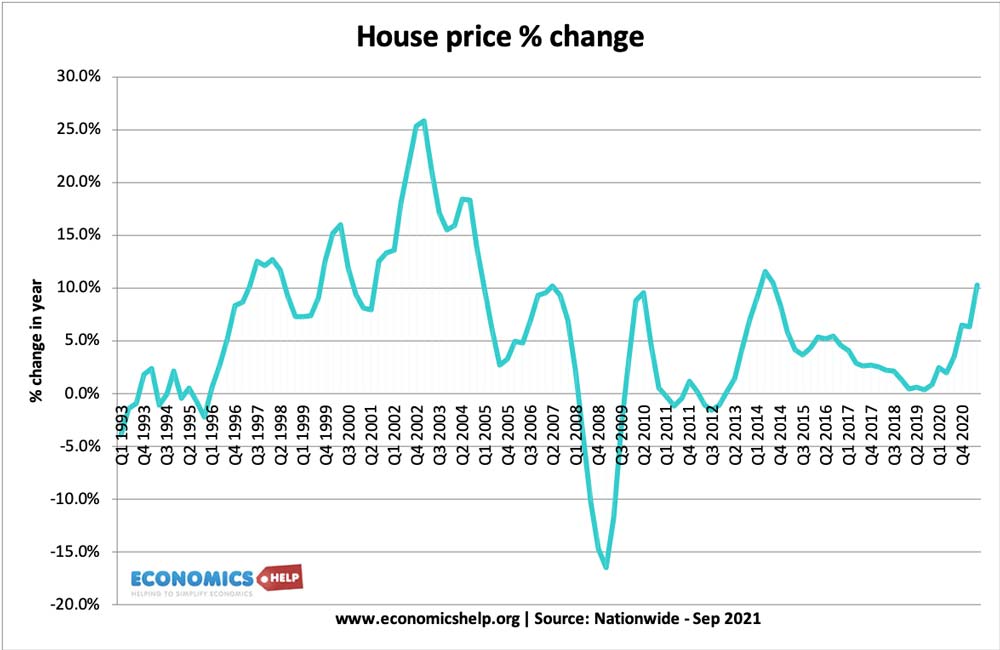Readers Questions: Could you not also argue not that the Euro is a failure but that it’s members/ECB are pursuing the wrong policy? Predictions of the death of the Euro seem to have been much exaggerated & surely Europe has the potential to be a world economic superpower to rival the US or China?
It is an interesting question, and to some extent inappropriate policy is a considerable factor in the ongoing European difficulties. However, there are still structural problems surrounding the Euro, which make economic stagnation more likely than in a floating exchange rate with independent monetary policy.
Poor Policy decisions in the Eurozone
1. Failure of ECB to intervene in bond market. One example of poor policy decisions is the failure of the ECB to stop rising bond yields earlier.
In 2011 and 2012, we saw a sharp spike in bond yields – because the ECB was, at the time, unwilling to act as lender of last resort and purchase any bonds or supply liquidity. This lack of intervention by a Central Bank meant that investors became nervous and bond yields rose to very high level. This rise in bond yields caused higher debt interest payments, but most damagingly were the motivation for deep austerity which caused a deeper recession in the affected Eurozone countries.
In 2012, the ECB changed its policy and became willing to intervene in the bond market. Bond yields fell – showing that decisive Central Bank intervention was needed. Therefore, despite higher government borrowing, bond yields are now much lower than in 2011 and 2012.
Before 2012, the ECB were partly blaming the constitution of the Eurozone where it seemed the Central Bank did not have a clear mandate to intervene and provide necessary liquidity in the bond market. However, the fact that bond yields have fallen in recent months suggests that the Euro can be more successful, if the Central Bank is given the authority and mandate to provide the necessary liquidity. Some Germany bankers are still unhappy at the ECB’s intervention – fearful it may encourage fiscal profligacy.
However, it is still more difficult in the Single Currency to intervene in bond markets. It is more complicated for a European wide Central Bank – how much should it intervene? which countries should be supported ?e.t.c.
But, if the ECB had understood the necessity of intervening earlier, then we could have avoided that period of high interest rates, and partly avoided the lurch towards austerity and lower aggregate demand.
Exchange rate imbalances
A structural problem of the Eurozone is that without exchange rate fluctuations the south became uncompetitive. This led to large current account deficits in Portugal, Spain and Greece, and large current account surplus in Netherlands and Germany.
A better policy for the Eurozone would be for Germany to increase domestic demand – boost consumer spending and allow a moderately higher inflation. This would help the Eurozone to rebalance. It would lead to higher demand for southern exports and help deal with the trade imbalance in the Eurozone. It would help southern Europe restore competitiveness without just relying on deflationary policies.

